Civil Liberties, Criminalizing Dissent, Human Rights, Surveillance, Truth to Power, War Resister
Podcast: Play in new window | Download

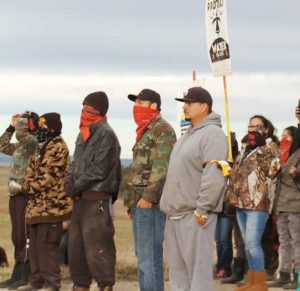
Legislation Criminalizing Protests
Throughout the nation, a rash of new bills are being introduced that increase the criminal penalty for the act of protesting. They have been in part inspired by the high-profile protests at Standing Rock, and also by model legislation drafted by the conservative and influential American Legislative Exchange Council. ALEC’s bills are designed to protect corporate interests. A new report from Greenpeace USA reveals how Energy Transfer Partners or ETP, the company behind the Dakota Access pipeline, with the fossil fuel industry, lobbied for legislation aimed at restricting and criminalizing protest. The report finds abuses on human rights, freedom of speech and faulty operations from the company.
ETP practices are destructive for the planet, for communities and for the health of democracy in the US. They have hired private security firms that surveil and infiltrate activist groups, advocated for laws that restrict the right to protest, or moving forward with pipeline projects against the will of Indigenous people and landowners, ETP is the poster child for unchecked corporate power. Annie Leonard, Executive Director at Greenpeace USA calls their projects lightning rods for controversy.
The report, Too Far, Too Often: Energy Transfer Partners’ Corporate Behavior On Human Rights, Free Speech, and the Environment, details how ETP lobbied for anti-protest legislation. It also shows how the company uses the courts and Strategic Lawsuits Against Public Participation (SLAPPs) to intimidate opponents of the Dakota Access pipeline project. In August 2017, ETP sued Greenpeace entities and others for USD $900 million, using RICO laws to claim that a collection of environmental groups and Indigenous allies constituted a criminal enterprise.
Guest – Attorney King Downing, seasoned civil liberties lawyer who has worked with activists for decades. King is the National Mass Defense Coordinator at the National Lawyers Guild.
—-

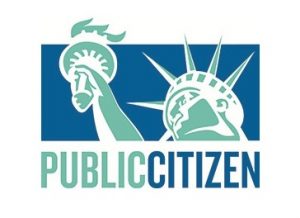
Big Pharma 101 and Affordable Prescriptions Made by Advancing the CREATES Act
It is estimated that the United States spends more than $500 billion dollars on prescription medicines each year. Total spending on drug therapies is about $371 billion dollars, including over-the-counter drug remedies, valued at 31 billion. A poll by the Kaiser Family Foundation found that 76% of Americans overall – and across party lines – say their top health care priority is ensuring that high-cost drugs for chronic conditions, such as HIV, hepatitis, mental illness and cancer, are affordable.
In a long overdue move, the U.S. Senate Judiciary Committee recently voted to advance the CREATES Act. It would prevent prescription corporations from abusing regulatory rules to deny generic medicines and biosimilar manufacturers access to product samples that allow these groups to obtain U.S. Food and Drug Administration approval and bring affordable products to market.
Corporations have long used this practice to delay the introduction of price-lowering generic and biosimilar competition. Brand-name manufacturers use it to inappropriately extend their monopolies. The Act aims to curb these abuses and promote competition. The U.S. Congressional Budget Office claims the Act will save $3.8 billion over the next 10 years.
Americans overwhelmingly support disciplining Big Pharma to help rein in pharmaceutical prices. The DC based group Public Citizen says that the CREATES Act begins to do that and cites it as a key structural reform that we can pass this year. It urges Congress should pass this legislation without delay.
Guest – Steven Knievel, Steven Knievel is a researcher and campaign organizer with Public Citizen’s Global Access to Medicines Program. He works with governments and public interest groups around the world to promote the use of flexibilities in patent and trade rules to promote access to medicines for all. He also works to mitigate the deleterious effects of corporate influence in trade negotiations on public health.
———

Academic Freedom, CIA Sponsored Terror, Civil Liberties, Criminalizing Dissent, Gaza, Human Rights, Targeting Muslims, Torture, War Resister
Podcast: Play in new window | Download
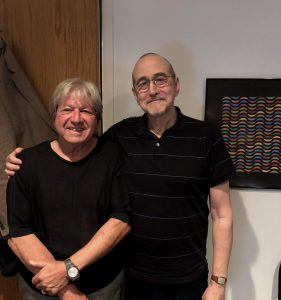
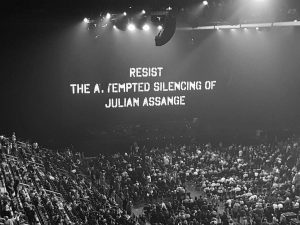
Mark Crispin Miller – Julian Assange, Voter Fraud and Fake News
WikiLeaks founder the truth telling publisher Julian Assange is in escalating danger of being sent from England to America where he would likely be tried for espionage, a crime that carries the death penalty.
Assange and WikiLeaks have revealed American war crimes in the middle east, CIA global machinations , and the work of Clinton Democrats in preventing the popular Bernie Sanders from heading up the party ticket.
Assange is presently holed up in the Ecuadorian embassy in London where he was granted political asylum six years ago by past leftist president Rafael Correa. But now, with the change of presidents in Ecuador, Assange has been cut off from the outside world. He has no phone, no computer, and no visitors.
The fresh offensive against him occurred the day after American General Joseph DiSalvo, the head of the US Southern Command, the Pentagon’s arm in Latin America, visited the new right wing Ecuadorian President Lenin Moreno. Moreno has said that Assange is “an inherited problem” and is seeking s better relationship with the United States government, to whom he has already granted a military base.
Guest – Mark Crispin Miller who is a professor of media studies at New York University. Professor Miller has frequently spoken about media propaganda, the engineering of consent for empire, fake news, and the destruction of the independent press. He has been awarded a Guggenheim Fellowship for the humanities and is a vigorous defender of Julian Assange and WikiLeaks.
—-

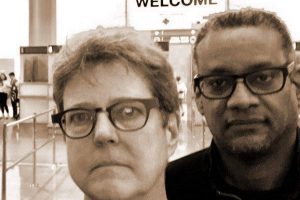
CCR Delegation To Israel
Like the USA, Israel is a colonial-settler state which, beginning in 1948, 70 years ago, expelled 750,000 native Palestinians, took their land, homes and businesses, and reduced those who remained to abused second class citizens, not unlike what was done to native Americans by white settlers in the USA. Their land was stolen, their tribes uprooted, and their culture practically destroyed.
In 1967 Israel expanded further, militarily occupying Palestinian territories to their north, east, and south, including East Jerusalem.
Last month Attorney and Columbia law professor Katherine Franke, the Chair of the Board of Trustees of the CCR, along with Attorney Vince Warren, the CCR’s Executive Director, headed up a 20 person delegation of American activists who traveled to Israel to report on the human rights situation there. Franke and Warren never made it past the airport in Tel Aviv. They were stopped, questioned , detained for 14 hours, and then deported back to the USA. Franke was told she could never return.
Guest – Attorney Katherine Franke, is the Sulzbacher Professor of Law, Gender, and Sexuality Studies at Columbia University, where she also directs the Center for Gender and Sexuality Law and is the faculty director of the Public Rights/Private Conscience Project. She is a member of the Executive Committee for the Institute for Research on Women, Gender and Sexuality, and the Center for Palestine Studies. She is among the nation’s leading scholars writing on law, religion and rights, drawing from feminist, queer, and critical race theory. She is the author of Wedlocked: The Perils of Marriage Equality. Her next book will be coming out from Haymarket Press in the spring: Repair: Slavery’s Unfinished Business makes the case for racial reparations in the U.S.
Civil Liberties, Human Rights, Surveillance
Podcast: Play in new window | Download
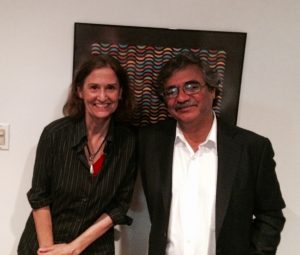

U.S. Information Technology And Cyber Security Awareness
America’s information technology infrastructure is especially inviting to adversarial attacks, as news headlines tell us again and again. Some say that our national cyber defense is inadequate to protect against cyber incidents, defined by the Department of Homeland Security as those “likely to result in demonstrable harm to the national security interests, foreign relations, or economy of the United States or to the public confidence, civil liberties, or public health and safety of the American people.”
We read how hackers gain access to our personal information stored by huge retailers such as Target and Home Depot, gaining access to millions of credit and debit card numbers. In 2014 JP Morgan Chase announced a breach affecting 76 million households and 7 million small businesses. The Government Accountability Organization reports a nearly 800 percent increase of threats to federal agencies from 2006 to 2012 at a cost likely to exceed $400 billion.
Despite this and evidence of Russian tampering with the 2016 elections, President Trump recently announced that he was getting rid of its top cyber policy adviser role, a position designed to help streamline the government’s overall approach to cybersecurity policy across federal agencies. Compounding problems of coordination is a lack of shortage of trained cybersecurity professionals to fill the growing number of jobs.
Guest – Professor Nasir Memon, founder and chair of New York University Tandon’s School of Engineering’s cybersecurity program. The Engineering School was one of the first to implement a cybersecurity program at the undergraduate level. In 2002, Nasir founded Cyber Security Awareness Week, an annual conference where tens of thousands of students compete in events and learn skills in cyber security. He is also co-founder of Digital Assembly, a software company that develops digital forensics and data recovery and Vivic, a company that produces malware detection software. Nasir’s research and commentary is widely published in scholarly and mainstream press, and he is a frequent radio and television guest.
—-

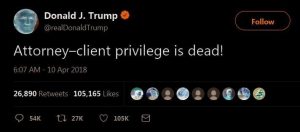
Attorney Client Privilege
The attorney-client privilege has been in the news with the unfolding Trump scandals in bringing about the FBI raid on Trump’s attorney Michael Cohen’s home, office, and hotel room where a number of documents and computer files were seized.
What is the attorney-client privilege? And to whom does it apply? Generally speaking, the privilege is owned by the client and unless the client waived her rights her lawyer is barred not only from revealing any information about the client but even revealing who the client is.
An exception in the case of the FBI raid and Donald Trump‘s attorney’s Office, Home, and hotel room was made on the grounds that there is a “fraud exception“ to the attorney-client privilege. Defenders of the attorney-client privilege, even if it has to do with protecting Donald Trump, have argued that it is illegal and unprincipled for the Justice Department to get a search warrant from a federal magistrate and violate the principle. These people argue that it is wrong to argue that “any stick will do to beat a dog” and that making an exception in the case of Trump could backfire.
Guest – Minneapolis Attorney Carla Kjellberg, has worked with victims of child sexual assault who have sued priests, litigated sensitive family law matters, and worked with unions and political activists.
————

————
Civil Liberties, Habeas Corpus, Human Rights, Political Prisoner, Prison Industry, Truth to Power
Podcast: Play in new window | Download
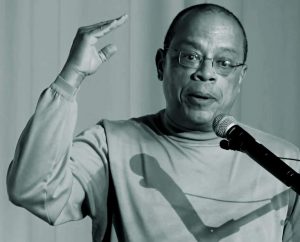

Who We Are: A Chronicle of Racism In America
In recent years, our guest, Attorney Jeffery Robinson has traveled the country speaking about the hidden history of race in America. It is a history he maintains that has been stolen from all of us. He will be speaking on this stolen history on June 19 at Townhall in New York City. His talk will be the basis for a feature documentary on the history of racism in America.
Guest – Attorney Jeffery Robinson, since graduating from Harvard Law School, Jeff has three decades of experience working on criminal and racial justice and reform issues. First, as a public defender representing indigent clients in state and then federal court in Seattle. Then, in private practice in Seattle at Schroeter, Goldmark & Bender where he represented a broad range of clients on charges ranging from shoplifting to securities fraud and first degree murder. He has tried over 200 criminal cases to verdict and more than a dozen civil cases representing plaintiffs suing corporate and government entities. Jeff was one of the original members of the John Adams Project, enabling him to work on behalf of one of five men held at Guantanamo Bay charged with the 9-11 attacks. Jeff is also a respected teacher of trial advocacy. He has lectured on trial skills all over the United States. Since 2012, Jeff has done work to educate himself and others about little known facts of the history of America’s practice of white supremacy related to African Americans. He speaks to diverse audiences across the country on the role of race in the criminal justice system and beyond. In 2015, Jeff joined the ACLU National office in New York where he continues this important work.
—-
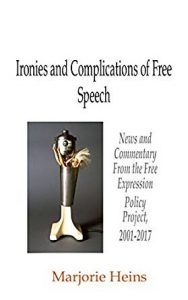
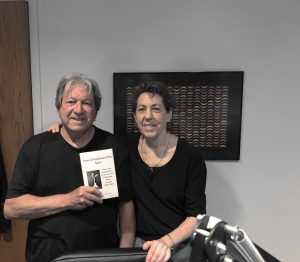
Ironies and Complications of Free Speech: News and Commentary From the Free Expression Policy Project, 2001-2017
The Free Expression Policy Project was a little think tank that delved into the problem of censorship in our society. Until 2017 it was headed up by civil liberties lawyer and author Marjorie Heins. The First Amendment ostensibly protects free speech and free expression. But there are exceptions. It also separates church from state, but here too there are exceptions. We speak with attorney Marjorie Heins about this. Her book Ironies and Complications of Free Speech: News and Commentary From the Free Expression Policy Project, 2001-2017 has just been published.
Guest – Attorney Marjorie Heins, is a civil liberties lawyer, writer, and teacher, and the founding director of the Free Expression Policy Project. Her previous book, Not in Front of the Children, won the American Library Association’s 2002 Eli Oboler Award for best published work in the field of intellectual freedom. Other books include Sex, Sin, and Blasphemy: A Guide to America’s Censorship Wars; Cutting the Mustard: Affirmative Action and the Nature of Excellence; and Strictly Ghetto Property: The Story of Los Siete de la Raza. She is a graduate of Harvard Law School.
——————

——————
















